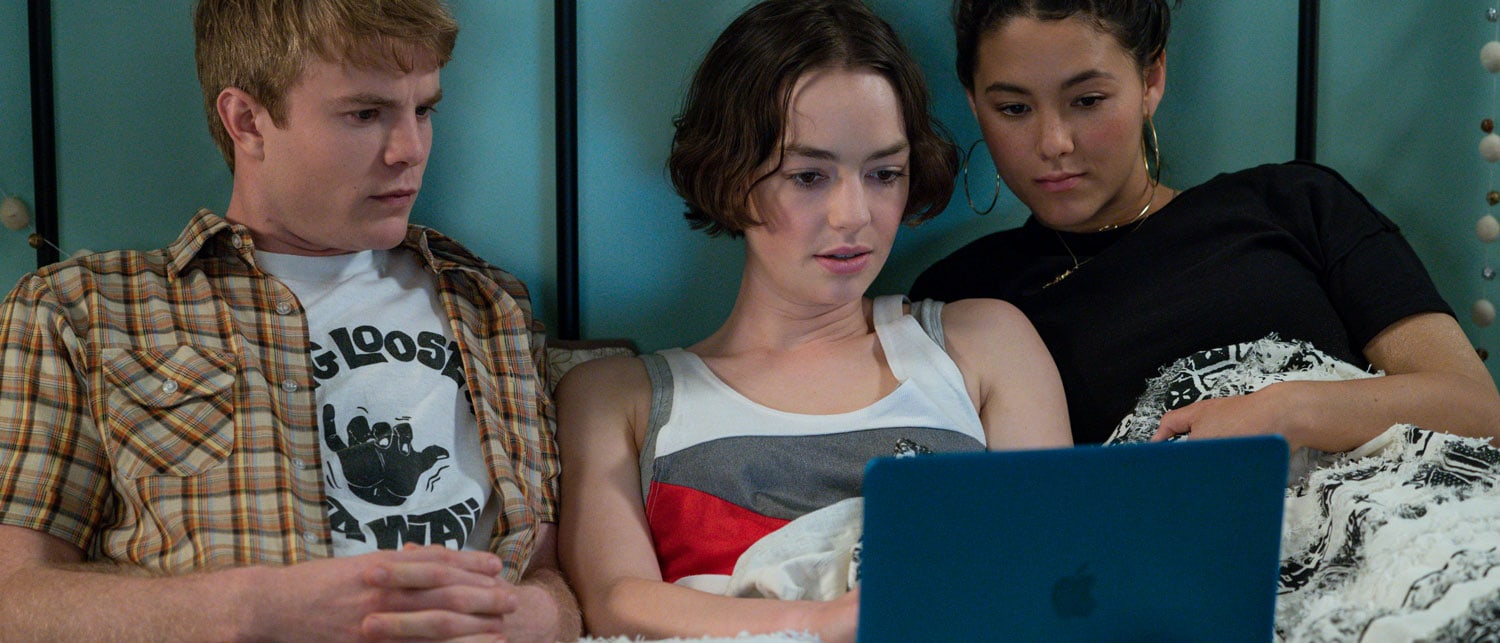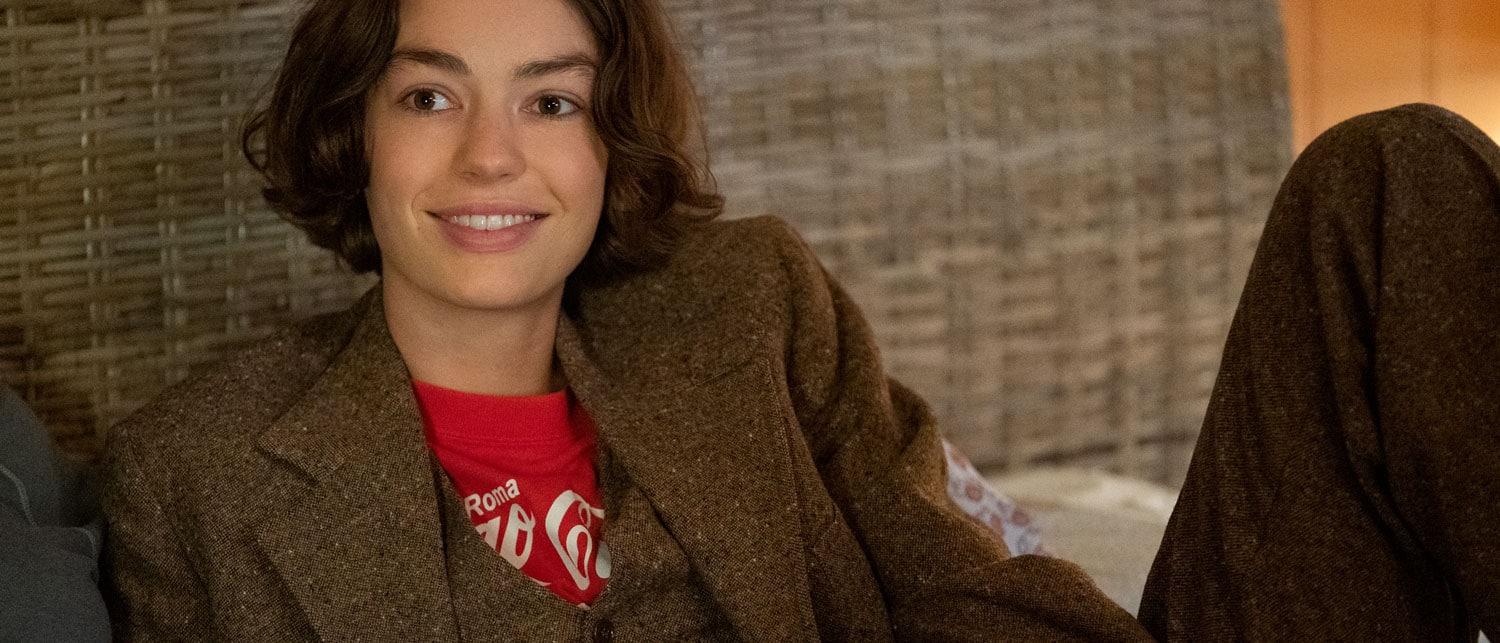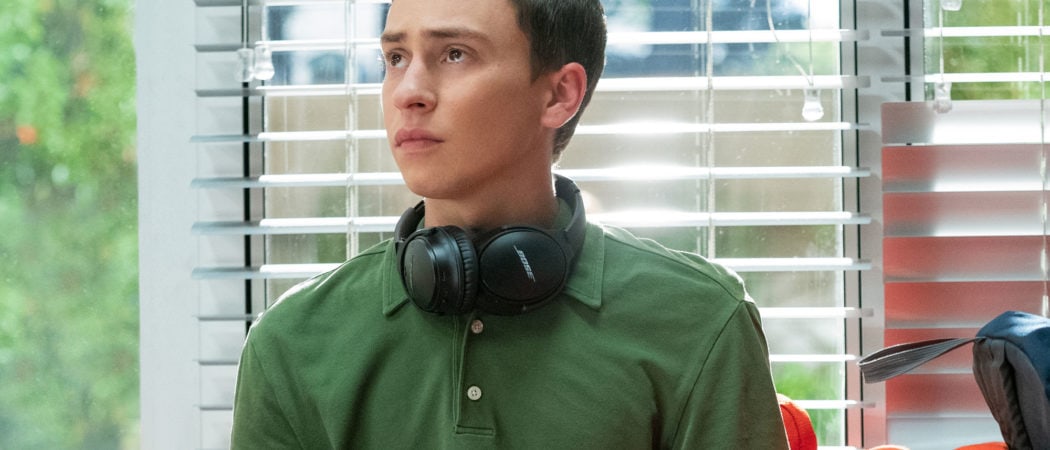Autistic representation has had a notoriously rocky history when it comes to being on screen. Take Rain Man for example – a show often cited as example representation, when it’s not actually about someone who is Autistic. Earlier this year, SIA faced something of an incredibly swift backlash to MUSIC, a film about being Autistic – sans a lead actress on the spectrum, with a lot of sensory overwhelm included. Atypical was another when it originally debuted on Netflix as well, too.
It has just been announced that the final season of Atypical will air on Netflix on the ninth of July – and some pretty big promises have been made, especially in terms of representation and experiences being brought to life on screen. (You can read more on what the director thinks you should expect here.) But what does this Autistic writer want to see when this series finally airs? Well, let me tell you exactly what I think.
What We Want To See In Atypical Season 4

Credit: Netflix
Read more: The Best On-Screen Representation Autism Spectrum Disorder (ASD)
Nuanced experience is needed at last!
There is a nuance to being on the Autistic spectrum. To be Autistic comes with its own tropes – that you are either a tragedy (I see you, anti-vaxxers), or that the state of being Autistic is a superpower in itself. A lot of representation and entertainment adaptations tend to rely on these tropes, and it reflects nothing of the reality of life on the spectrum or just trying to cope in a Neurotypical world. If you are going to put Autism front and centre, at least inject a little bit of realism – or you may well find yourself appropriating a label just for reasons of escapism on screen.
In earlier seasons of Atypical, I was often dismayed and felt upset; well-meaning relatives would watch and say things like “he’s so like you in this instance!” But there is more to an individual than a label, so much more than outside perception – which earlier seasons rely a little too much on. To see the action from Sam’s point of view, rather than the drama of everyone else, would be great as it shows a restricted theory of mind. It would also be a lot more insightful, as well as immersive. Autism is not about parents of the Autistic child or offspring, because that is just co-opting a label. Sorry to break it to you, but it’s true.
So, yes. Nuance please! Or give the Autistic character much more and fulfilling screen time, shot from their perspective.
Will Sage last?

Credit: Netflix
Read more: His Dark Materials Gets Diversity Right – Here’s Why That Matters
What makes Atypical unique is that the romance parts of episodes do break some boundaries. It is often assumed that an Autistic person will not date anyone outside the spectrum, or that they should not date at all – because lacking social cues and an inability to read them just so obviously means there is no desire to be loved! Spoiler – that is so incorrect on so many levels, and was quickly busted by Elsa being taken down a peg or two, when she realises she has to let Sam go out into the world.
Sage – Sam and Page – together is something just so very beautiful. Sam is Autistic, Page is not – just very angry at points, but for the right reasons. They match each other to a T, and it shows that there is more than just silly expectations misleadingly sometimes depicted on screen. To see Sage last throughout Sam in college and Page being, well, Page, would be a great step for representation.
Casey needs to be allowed to grow
Say it louder for the people in the back, right now: parentification should not be allowed! Ever. Meaning that older or younger siblings should not have to care for other siblings when there are parents around. And that counts as well if there is disability thrown into the mix, too.
Casey has had to deal with this a lot. And it is beyond unfair – and probably indicative of wider household dynamics. (See also: bad parenting.) She almost had to put her own hopes and dreams on hold because of “your brother” – and her parents often poorly manage, meaning she is left out a lot, or the attention is diverted away when it should rightfully belong to her. Now, caring for an Autistic person is not easy – but normalising parentification on screen should not be allowed. At all. Because this is not normal, and it is unacceptable.
As a character, growth to the way Casey interacts with the storyline would be really refreshing. To see her in a relationship – be it a boy, a girl, etc – is great because there is so much to explore there. But growth needs to be allowed to, and she needs to be seen not just through the lens of her sibling.
What about the Gardeners marriage?
It was rocky to begin with – and looks fragile in the stitched-together state right now. What is going to happen? Will the household last? If there is a divorce, how will Atypical cover Sam’s reaction and ability to cope with the fallout? Answers on a postcard. Please. July is too far away.
Disband the horrible mommy group
Autism is the diagnosis of the person who has it – and co-opting this as an identity is so unbelievably toxic. The character of Elsa often attends a horrible ‘Mommy group’ – is this a grief group?! Gah! – which is unbelievably toxic at times. The use of language also needs to be questioned and confronted; it is for an Autistic person to tell you how they preferred to be referred to, not someone who is not on the spectrum. (I.E someone Neurotypical.) “With Autism” is taken as something quite offensive a lot of the time – and is the language generally preferred, though it is down to the individual. This group has got to go, and Elsa needs to grow up from thinking of her son as a tragedy. He is a human being, too – beautifully imperfect like everyone else, regardless of neurology.
Season 4 of Atypical airs on Netflix on 9th July 2021.
What do you make of this story? Let us know in the comments below or on our Facebook, Twitter or Instagram pages! And if you enjoy listening to film podcasts, why not check out our podcasts, Small Screen Stories and Small Screen Film Club wherever you get your podcasts!
















There are no comments
Add yours